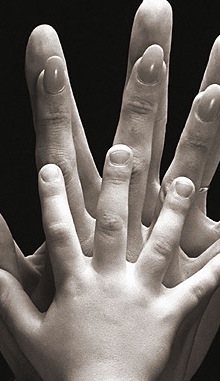 When it comes to marriage, sex, domestic violence, abortion, crime, substance abuse and everyday honesty, how do Christians stack up?
When it comes to marriage, sex, domestic violence, abortion, crime, substance abuse and everyday honesty, how do Christians stack up?
Some of you were asking Wednesday about “non-churchy” behaviors, well, here are some numbers.
These are the questions Brad Wright asks and probes in the 6th chap of his excellent new book, Christians Are Hate-Filled Hypocrites…and Other Lies You’ve Been Told: A Sociologist Shatters Myths From the Secular and Christian Media
.
.
Brad tells a story about divorce rates among Evangelicals, how he read a report that atheists divorce at a rate lower than Evangelicals, and he knew that was inaccurate, so he wrote another report — both of these were on the internet — and discovered something else: the pro-atheist report had over 2500 Diggs while his report had less than a dozen. Conventional wisdom, he suggests, emerged that suggested Evangelicalism’s divorce rate was higher than atheists. The media, he says, is more willing to believe negative things about Evangelicals than positive things. Bad news spreads faster than good news.
Big question: Does becoming a Christian make a person better?
So, here are some numbers:
Religious people have a lower cohabitation rate than religiously unaffiliated people: 4 vs. 8%.
Divorce: 42% vs. 50%.
Christians and divorce: Catholics 35%, Mainline Prots 41, Evangelicals 46%, Black Prots 54%.
Church attendance affects these numbers markedly. The more often one goes to church the less likely people who either cohabit or divorce.
Domestic violence: impacted by church attendance.
Sex numbers: Adultery in life, 2+ partners this year, X-rated this year.
Evangelicals: adultery (16), 2+ partners this year (10), and X-rated (18)
Mainline Prots: roughly the same
Black Prots: 24, 21, 30%.
Unaffiliated: 26, 22, 35%.
Substance abuse: 5 drinks or more when you drink, pot, hard drugs
Church attendance showed measurable differences: our numbers show the numbers from never attend to weekly attendance.
Prots on 5 drinks from 12-4%.
Prots on Pot: 14-5%
Prots on illegal drugs: 6-2%.
Overall, then, Wright shows that while Christians don’t live up to their beliefs, they live closer to those beliefs than the unaffiliated and church attendance is a good measure.
He says the charge of hypocrisy is often mistaken: claiming to do one thing and not doing is hypocritical; claiming to believe something, not doing it, and then saying you are not doing it is sin but it is not hypocrisy.
Becoming a Christian, in other words, makes people better.

